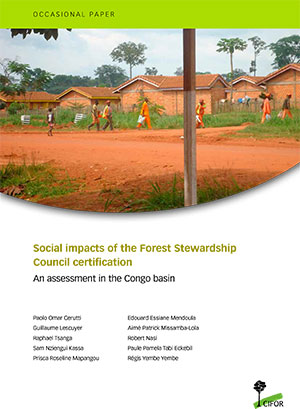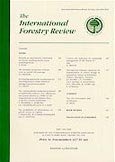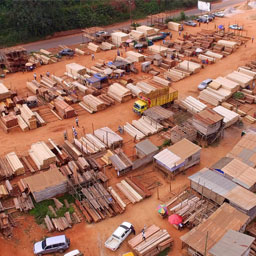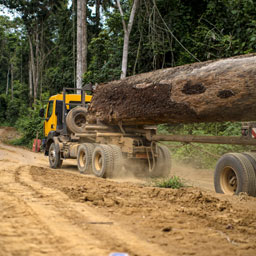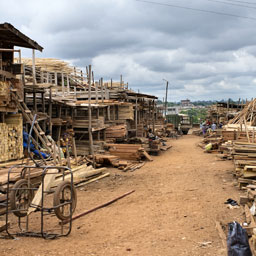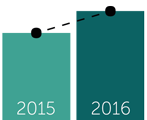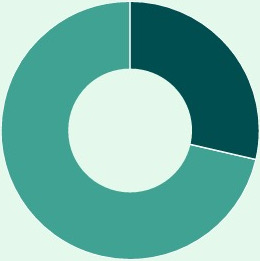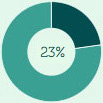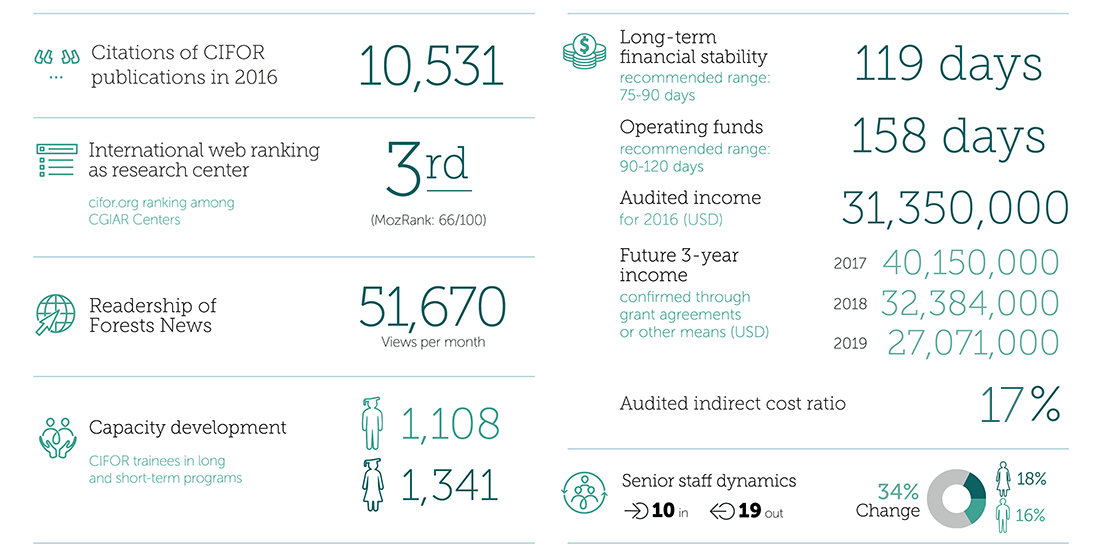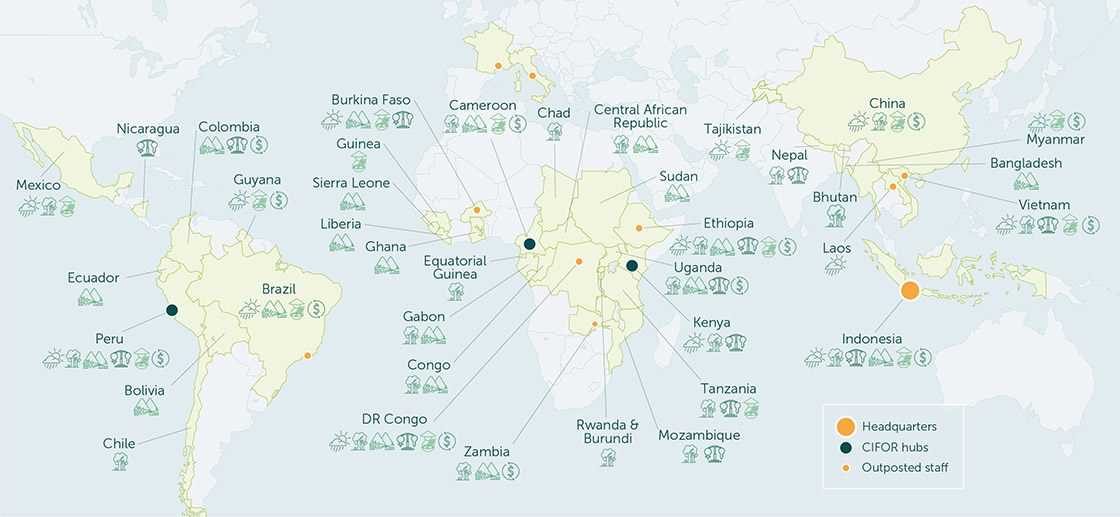
A seat at the forest certification table
CIFOR is engaging directly with private companies and policy makers in the search for a more sustainable timber trade in the Congo Basin
Forest certification is changing people’s livelihoods for the better in the Congo Basin, and CIFOR is bringing evidence of this directly to policy makers and the private sector. Since the 1990s, certification has aimed to promote responsible forest management and reduce forest degradation by ensuring timber is produced according to specific, voluntary, third-party-audited standards. The Forest Stewardship Council (FSC) is the most prominent voluntary certification system dedicated to the promotion of responsible forest management in the tropics.
CIFOR scientists began studying the social impacts of forest certification in Cameroon, Gabon and the Republic of the Congo in 2013. They found that, compared to forest concessions that simply meet legal standards, certified concessions had better working and living conditions around sawmills, including cleaner water, better housing and medical facilities, and less conflicts.
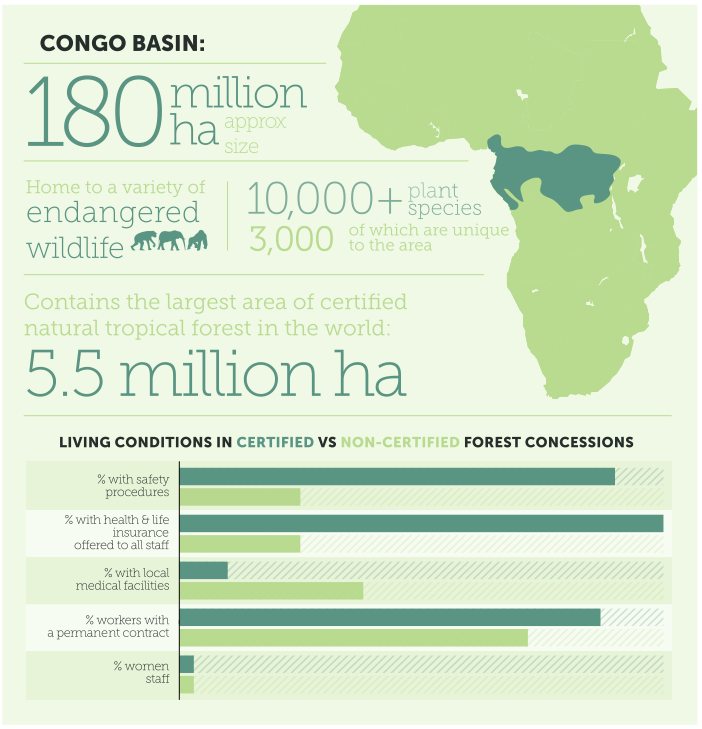
Sharing the responsibility for sustainable supply chains
The World Wide Fund for Nature (WWF) co-funded the research, and invited CIFOR scientists Paolo Cerutti and Raphael Tsanga to share the findings with government officials, funders, private companies and civil society in Cameroon, the Netherlands, Republic of Congo, Germany, Belgium, Gabon, Spain, France and Norway. In 2014, the WWF International Forest Team published a response to CIFOR’s study, along with recommendations for greater collaboration among funding agencies, universities and industry to assess the social, economic and ecological impacts of certification.
Later that year, three major players in the forest products value chain – IKEA, Kingfisher and Tetra Pak – contributed to the launch of the Value and Impact Analysis (VIA) Initiative, which is coordinated by ISEAL Alliance, the global membership association for sustainability standards. The Initiative aims to provide businesses that want to have a positive impact on the environment and society with the evidence they need to communicate about such impacts and make their supply chains more sustainable.
CIFOR has been a core member of the VIA Initiative’s Technical Advisory Group (TAG) since its launch in 2015. In 2016, the TAG met several times to start testing methodologies that could help the private sector reach the VIA objectives.
VIA is a very welcome initiative because it tries to link complex on-the-ground logging activities – which historically have had a bad reputation – with end consumers, and it aims to do this in a collaborative way with the private sector, avoiding simplistic messages, and using a solid methodology.
Paolo Cerutti, Senior Scientist, CIFOR
Keeping forests intact
Intact Forest Landscapes (IFLs) are areas of forest and non-forest ecosystems untouched by roads or other significant human activity and large enough to maintain their native species populations. They are critical to storing carbon, harboring biodiversity, regulating water and humidity, and providing other ecosystem functions.
These landscapes are a major concern for the FSC. At its 2014 General Assembly, the FSC’s governing body adopted Motion 65 to confirm its commitment to the protection of IFLs. The motion was overwhelmingly approved by members from economic, social and environmental backgrounds, and was well received by indigenous groups. They praised it as a framework for inclusive decision-making that takes into account both scientific evidence and the needs of forest-dependent communities.
Yet the concept of IFLs needs a lot of work and adaptation to different regions of the world in order to become a reality and to avoid harming the positive effects of certification. Within this framework, CIFOR was invited to join the high-level FSC Intact Forests Landscapes Solutions Forums, held in December 2015 and July 2016 in Bonn, Germany.
Around the table were policy makers, funders, private companies, NGOs and indigenous groups. Based on past and current research on certification and timber value chains, CIFOR stressed the need to consider the local context much more in discussions and definitions of Intact Forest Landscapes, something that tends to be outside the discussions on IFL and logging concessions.
The local context, and in particular who is actually harvesting and trading timber in different countries, is very important because the concept of IFLs and their conservation goes way beyond what logging concessions can do to protect them.
Raphael Tsanga, Senior Research Officer, CIFOR
Gender dynamics
Although the research did not focus specifically on gender issues, the data revealed that both certified and non-certified concessions shared the same low representation of women in timber-related jobs. Both cultural and technical issues explain the lack of women’s integration into the industrial forest sector, but, as Paolo Cerutti explains, “the situation must change because forestry is no longer just the business of chopping down trees, but of sustainably managing a portion of land with its socio-economic and environmental challenges. Companies owning certified concessions should lead by example and actively try to integrate more women into their production and management processes.”
Photo by O. Girard/CIFOR.




